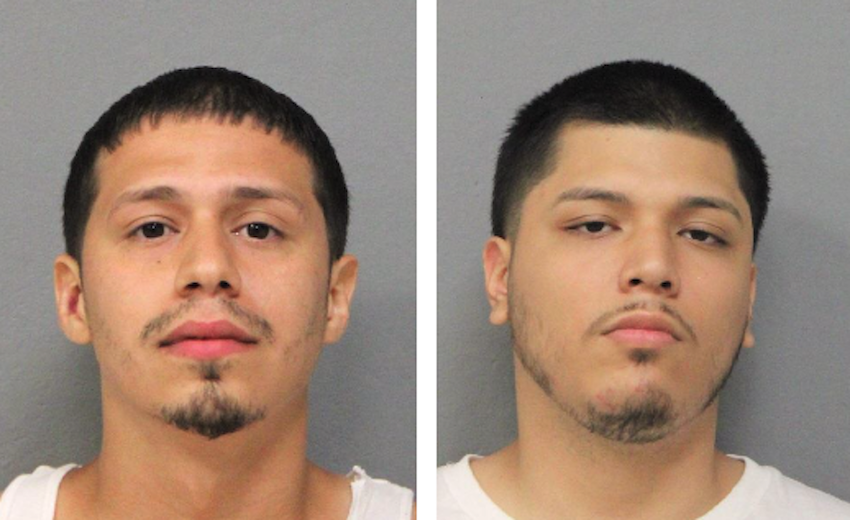Two Bronx men have been arrested in East Meadow for attempting to scam a 73-year-old man out of his savings, according to the Nassau County Police Department. The incident occurred on Wednesday, July 31, 2024, at 5:50 PM.
The victim received a phone call from an unknown male claiming to be an inspector with the Federal Trade Commission. The caller falsely informed the victim that his bank accounts had been compromised and instructed him to withdraw and hand-deliver all his savings to set up a secure account. Suspecting something was wrong, the victim approached a police officer for advice. The officer confirmed it was a scam and quickly intervened.
Detectives and officers coordinated efforts to apprehend the suspects, Luis Santiago, 27, and Stephano Rivera, 20, when they arrived at the victim’s home. Both men were arrested without incident. During questioning, Santiago and Rivera admitted to multiple other scams in different jurisdictions. Investigations are ongoing, and relevant police departments have been notified.
The defendants are charged with Grand Larceny 3rd Degree and were arraigned on Thursday, August 1st at First District Court, 99 Main Street, Hempstead. Bothe men pled not guilty and were issued a temporary order of protection. They were released on cashless bail.
The Nassau County Police Department has urged the community to remain vigilant and to remind elderly family members and neighbors about potential scams. If you believe you may have been targeted by these individuals, call Nassau County Crime Stoppers at 1-800-244-TIPS or dial 911. All callers will remain anonymous.
The Growing Threat of Elder Fraud
Elder fraud is a pervasive issue, with the FBI reporting significant losses among elderly victims. According to the FBI, elderly Americans reported losses exceeding $3.1 billion in 2022, a staggering 84% increase from the previous year. The Bureau highlights that these scams often exploit the trust and vulnerability of older adults, making them particularly susceptible to financial fraud. The most common types of elder fraud include romance scams, lottery scams, and tech support scams.
The FBI emphasizes the importance of education and awareness in combating elder fraud. Seniors are encouraged to be skeptical of unsolicited phone calls, emails, or messages requesting personal information or money. Family members can play a crucial role by discussing potential scams and helping elderly relatives verify suspicious contacts.
Recent Elder Scam Incidents
Recent incidents highlight the increasing threat of elder fraud. In one case, a scammer duped an elderly man out of $390,000 in gold bars. A 73-year-old victim received a computer notification lat June claiming his device had been compromised. The message instructed him to contact a number to protect his assets. When the victim called, an unknown person posing as a Federal Trade Commission employee instructed him to purchase six gold bars worth approximately $390,000 from JM Bullion. The victim complied, and an unidentified man arrived at his residence to collect the gold bars. He then disappeared. The suspect was later arrested in an elaborate sting operation conducted by local authorities, who tracked the transactions and set up a meeting to catch the scammer in the act .
In another incident, scam artists targeted elderly homeowners in Floral Park with a home repair fraud scheme. The scammers posed as contractors offering home repair services, convincing the elderly victims that urgent repairs were needed. They presented inflated estimates and pressured the homeowners into immediate payments, often for work that was unnecessary or never completed. The scammers used high-pressure tactics to exploit the victims’ fears and urgency. The suspects were eventually apprehended. This case highlights the vulnerability of the elderly to fraudsters who exploit their trust and lack of technical knowledge.
Protecting the Elderly
These cases underscore the importance of vigilance and proactive measures in protecting the elderly from fraud. Authorities recommend regular discussions about potential scams and verifying the identity of anyone requesting money or personal information.
Photo: NCPD.




